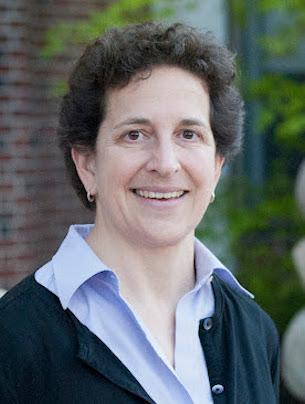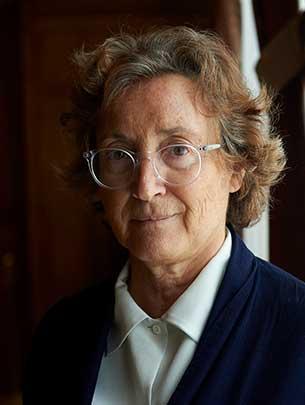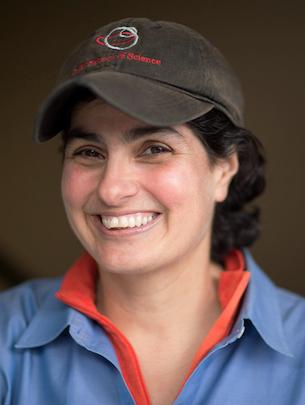The University of Chicago will present honorary degrees to four distinguished scholars at its Convocation ceremony in June 2022, in recognition of their significant contributions to their fields of study.
The recipients are Cora Diamond, a philosopher at the University of Virginia; Katherine H. Freeman, an organic biogeochemist at Pennsylvania State University; Mercedes García-Arenal, a historian at the Spanish National Research Council; and Nergis Mavalvala, an astrophysicist at the Massachusetts Institute of Technology.

Cora Diamond, a distinguished philosopher, will receive the Honorary Degree of Doctor of Humane Letters. Diamond has produced groundbreaking work in three major areas: the philosophical foundations of logic; the interpretation of 20th-century Austrian-British philosopher Ludwig Wittgenstein; and the ethical treatment of animals. She also has produced important work on gender studies, literary theory and care ethics.
The Kenan Professor of Philosophy Emerita at the University of Virginia, Diamond’s scholarship has joined these disparate subjects together in ways that illuminate the contributions that philosophy can make to the broader culture. She also has shaped the trajectory of philosophical scholarship around the world: Her work has been collected and published in multiple languages, and entire essay collections and conferences have been devoted to discussions of her work in moral philosophy.
Diamond has been an author, editor or contributor to 10 books—including works in Italian, French and German—and more than 100 journal articles and essays, with others forthcoming. Her most recent book is Reading Wittgenstein with Anscombe, Going on to Ethics (2019). She is a member of the American Philosophical Society.

Katherine H. Freeman, a world-renowned organic biogeochemist, will receive the Honorary Degree of Doctor of Science. Freeman studies ancient organic molecules and their stable isotopes—work that has given fundamental insights into the study of climate change over millions of years
The Evan Pugh University Professor of Geosciences and Chemistry at Pennsylvania State University, Freeman’s development of the paleo-carbon dioxide proxy record has had wide-ranging implications for the study of climate change. She also contributed to the invention of compound-specific stable isotope analysis, and continues to develop new measurement techniques that will allow deeper understanding of ancient molecular structure than ever before. As a leader in molecular isotope paleontology, she has studied areas ranging from the earliest recognized life on Earth to modern biological processes.
Freeman is a member of the National Academy of Sciences, and a fellow of the Geological Society of America, the Geochemical Society, the American Academy of Microbiology and the American Geophysical Union. She is also a recipient of the Alfred Treibs Award from the Geochemical Society, the highest honor in organic geochemistry; the Arthur L. Day Medal from the Geological Society of America; and the 2020 Nemmers Prize In Earth Sciences from Northwestern University.

Mercedes García-Arenal, one of Europe’s most eminent historians and a leading scholar of religion in post-Franco democratic Spain, will receive the Honorary Degree of Doctor of Humane Letters.
She has studied the Muslim inhabitants of Europe in the late medieval and early modern period; the Spanish Inquisition; and Iberian-North African history, opening new areas of inquiry in historical analysis and the study of religious minorities. She is currently a research professor at the Spanish National Research Council’s Institute of Languages and Cultures of the Mediterranean and the Near East.
A major area of focus in García-Arenal’s scholarship has been the study of the Moriscos—people whom the Spanish Crown forced to convert from Islam to Christianity—and their descendants. Her work on the history of Iberia and North Africa also has been transformational, examining how the flows of people and ideas changed both Islam and Christianity in the West.
With nearly 40 authored or co-authored books and hundreds of articles, she also serves as the sole historian and humanist on the scientific committee of the European Research Council. She is a recipient of Spain’s highest honor for academic research, the Premio Nacional de Investigación Ramón Menéndez Pidal.

Nergis Mavalvala, a leading astrophysicist, will receive the Honorary Degree of Doctor of Science. A leader in the observation of gravitational waves and quantum measurement, Mavalvala is noted for her work on the discovery of gravitational waves, and for developing precision quantum optical tools that improved scientists’ ability to measure extremely small motions of large objects.
The Curtis and Kathleen Marble Professor of Astrophysics at the Massachusetts Institute of Technology, she has been at the vanguard of a new field of research—known as quantum optomechanics—that has led to revolutionary advances in fundamental physics and precision measurement. Her work has been credited as being integral to the Laser Interferometer Gravitational-Wave Observatory (LIGO) project. She is now studying the relationship between the macroscopic world and the quantum world underlying it.
She is an elected member of the National Academy of Sciences and the American Academy of Arts and Sciences, and a recipient of a MacArthur Fellowship. She also serves as the dean of the MIT School of Science.







